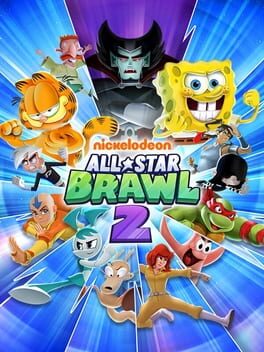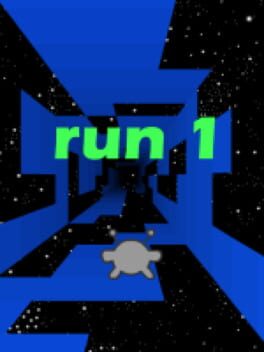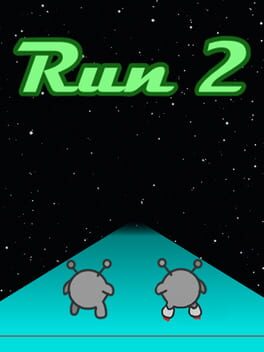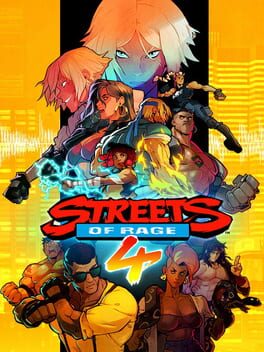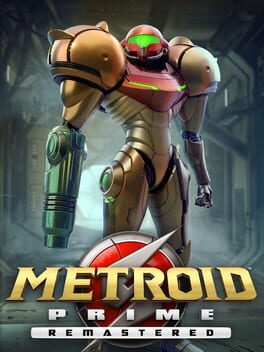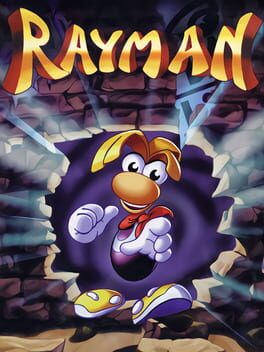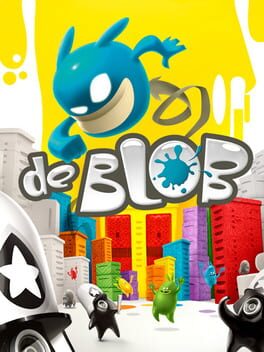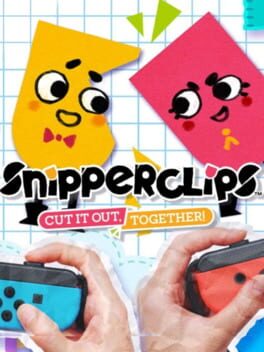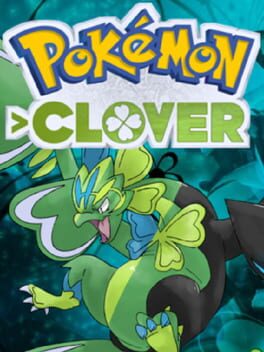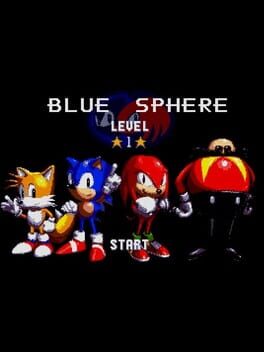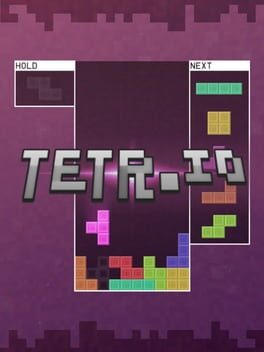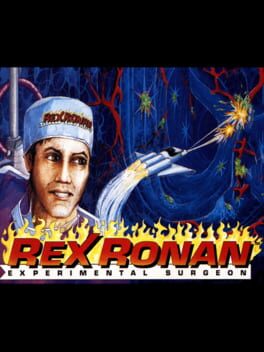Sweguin
261 Reviews liked by Sweguin
Run
2008
Run 2
2011
Streets of Rage 4
2020
Rayman
1995
de Blob
2008
Talking flowers, really?
This series has been around for god knows how long and the kids who grew up with the original game on the NES are old enough now to collect social security. So why does the series continue to go for the kiddie audience instead of appealing to his actual fans, the adults? Think of how awesome a Mario game where he swears and uses mushrooms like drugs would be. Such a shame that the lazy devs don’t understand what the real fans want.
This series has been around for god knows how long and the kids who grew up with the original game on the NES are old enough now to collect social security. So why does the series continue to go for the kiddie audience instead of appealing to his actual fans, the adults? Think of how awesome a Mario game where he swears and uses mushrooms like drugs would be. Such a shame that the lazy devs don’t understand what the real fans want.
Pokémon Clover
2020
It might just be a sign that I've spent a bit too much time on anonymous message boards, but the humor didn't really bother me all that much.
An astounding labor of love by a highly insular community for said highly insular community. The amount of unique content on offer here is staggering, featuring 386 fakemon and a massive postgame. What really makes Clover stand out among the mountains of mediocre hacks is it's balance. Rom sites are littered with projects titled something like "radical opal" substituting bloated stat totals for difficulty. Clover presents a legitimate challenge for hardcore fans without sacrificing the viability of a casual playthrough.
Highly recommended to just about anyone with an interest in competitive pokemon.
An astounding labor of love by a highly insular community for said highly insular community. The amount of unique content on offer here is staggering, featuring 386 fakemon and a massive postgame. What really makes Clover stand out among the mountains of mediocre hacks is it's balance. Rom sites are littered with projects titled something like "radical opal" substituting bloated stat totals for difficulty. Clover presents a legitimate challenge for hardcore fans without sacrificing the viability of a casual playthrough.
Highly recommended to just about anyone with an interest in competitive pokemon.
Blue Sphere
1994
I was once told I was "the Blue Spheres guy," whatever the hell that means. Not that I don't value the recognition of my deep and unwavering love for Get Blue Spheres, the best special stage in the classic Sonic the Hedgehog series. Thankfully, Sega knew little freaks like me would want to play more than the meager 14 levels found across the entirety of Sonic 3 & Knuckles, so some genius at Sonic Team devised a way for Sonic & Knuckles to look at the ROM header of games locked onto it and generate new Blue Spheres levels based on what it finds. You know what that means?
UNLIMITED BLUE SPHERES!
Now, imagine being a kid in 1994, frequently using the level select cheat in Sonic 3 & Knuckles to play the special stages for fun. One day you pop in Sonic the Hedgehog thinking, I don't know, maybe it'll finally put Knuckles in the game this time, because you're 7-years-old and dumber than a brick. Of course it doesn't, but as you mash the buttons on the controller out of frustration, you happen to tap A+B+C simultaneously, unlocking the full Blue Sphere experience. I felt like I had broken out of the Matrix.
The way this all operates is pretty smart. As mentioned, Sonic & Knuckles looks at the ROM header of attached games, and based on the numerical value of the header, different prefab parts of a Blue Sphere stage are assembled. In total, there's 134,217,728 possible combinations, and when playing with Sonic the Hedgehog locked on, the player can freely edit the values of a header located on the bottom of the screen to play through them all (or they can be played sequentially.) So, how do you "beat" Blue Sphere? Conventional wisdom would say you have to clear over a hundred million levels, but that's just not feasible, so instead I locked on every single Genesis cart I own and beat the resulting levels. I feel like this is good enough to mark it as complete, but it should be a federal crime to log this game as "mastered" if you don't play and perfect all 134,217,728 levels. As the resident "blue sphere guy" I should be deputized and given the authority to ban people who fail to comply.
As a mode, Blue Spheres is unsurprisingly my favorite among the classic Sonic special stages. These were always designed as technical set pieces, more concerned with showing off than creating something particularly fun to play, but Sonic Team finished strong with this one. Each level is its own puzzle to figure out, and in the case of the "stand alone" game, the interlocking nature of each stage's prefabricated parts heightens the level of problem-solving involved due to how confounding some of the resulting layouts can be. I find this to be pretty engaging, though some presets seem to be more common than others, and when you have a stack of 26 games to go through, you'll probably start to see some levels with a few too many repeating parts.
Not that this totally kills my enjoyment, of course, as I can always use my increasing familiarity with certain stage elements as an excuse to begin perfecting runs. I think it was a really smart move to put this additional layer of ring collecting on top of grabbing blue spheres, as it challenges the player to consider how to collect every ring before ending the stage early, and getting a "perfect" provides a means of marking the player's skill that prior special stages did not.
None of this would work if the player felt like they lacked control over Sonic, and any dip in performance that resulted in colliding with a dreaded red sphere would make the whole thing come crashing down. Thankfully, Sonic Team was able to push beyond the choppy nature of Sonic 2's halfpipes and awful performance of Sonic CD's UFO hunts, and though it runs at a compromised 30fps, Blue Spheres is at least consistent and predictable. I also love the theme music. Probably one of my favorite tracks in the entire series, and I am endlessly amused by it being reused from SegaSonic Bros, (not that this series is any stranger to recycling music.) Some of my earliest memories are of my parents on the cusp of divorce arguing in the next room, and me cranking the volume up while playing Blue Spheres so the music would drown them out.
Thank you for being part of my childhood, Blue Spheres!
UNLIMITED BLUE SPHERES!
Now, imagine being a kid in 1994, frequently using the level select cheat in Sonic 3 & Knuckles to play the special stages for fun. One day you pop in Sonic the Hedgehog thinking, I don't know, maybe it'll finally put Knuckles in the game this time, because you're 7-years-old and dumber than a brick. Of course it doesn't, but as you mash the buttons on the controller out of frustration, you happen to tap A+B+C simultaneously, unlocking the full Blue Sphere experience. I felt like I had broken out of the Matrix.
The way this all operates is pretty smart. As mentioned, Sonic & Knuckles looks at the ROM header of attached games, and based on the numerical value of the header, different prefab parts of a Blue Sphere stage are assembled. In total, there's 134,217,728 possible combinations, and when playing with Sonic the Hedgehog locked on, the player can freely edit the values of a header located on the bottom of the screen to play through them all (or they can be played sequentially.) So, how do you "beat" Blue Sphere? Conventional wisdom would say you have to clear over a hundred million levels, but that's just not feasible, so instead I locked on every single Genesis cart I own and beat the resulting levels. I feel like this is good enough to mark it as complete, but it should be a federal crime to log this game as "mastered" if you don't play and perfect all 134,217,728 levels. As the resident "blue sphere guy" I should be deputized and given the authority to ban people who fail to comply.
As a mode, Blue Spheres is unsurprisingly my favorite among the classic Sonic special stages. These were always designed as technical set pieces, more concerned with showing off than creating something particularly fun to play, but Sonic Team finished strong with this one. Each level is its own puzzle to figure out, and in the case of the "stand alone" game, the interlocking nature of each stage's prefabricated parts heightens the level of problem-solving involved due to how confounding some of the resulting layouts can be. I find this to be pretty engaging, though some presets seem to be more common than others, and when you have a stack of 26 games to go through, you'll probably start to see some levels with a few too many repeating parts.
Not that this totally kills my enjoyment, of course, as I can always use my increasing familiarity with certain stage elements as an excuse to begin perfecting runs. I think it was a really smart move to put this additional layer of ring collecting on top of grabbing blue spheres, as it challenges the player to consider how to collect every ring before ending the stage early, and getting a "perfect" provides a means of marking the player's skill that prior special stages did not.
None of this would work if the player felt like they lacked control over Sonic, and any dip in performance that resulted in colliding with a dreaded red sphere would make the whole thing come crashing down. Thankfully, Sonic Team was able to push beyond the choppy nature of Sonic 2's halfpipes and awful performance of Sonic CD's UFO hunts, and though it runs at a compromised 30fps, Blue Spheres is at least consistent and predictable. I also love the theme music. Probably one of my favorite tracks in the entire series, and I am endlessly amused by it being reused from SegaSonic Bros, (not that this series is any stranger to recycling music.) Some of my earliest memories are of my parents on the cusp of divorce arguing in the next room, and me cranking the volume up while playing Blue Spheres so the music would drown them out.
Thank you for being part of my childhood, Blue Spheres!
Tetr.io
TBD
Chrono Trigger
1995
A juggernaut of groundbreaking ideas encapsulated into distilled magic. Yes, Chrono Trigger is always referenced as the end-all-be-all masterpiece JRPG, and as someone who prefers to view products before my time as products of their time, it's almost too easy to say the mass opinion is correct in its case.
Interpolating Chrono Trigger's multilayered time-travelling narrative masterstrokes is a combat system that combines the best of Final Fantasy's synonymous ATB system and Dragon Quest's malleable magic formatting. In addition to removing separate battle scenes entirely in favor of battles playing out in the top-down overworlds is Chrono Trigger's mechanical coup de grâce, a "Tech" system of combining magic abilities between party members. Planning and unleashing Tech gambits that vary in not only elemental effectiveness but within its positions adds an element of actual strategy, one I got so delighted with tinkering and abusing I don't think I ever pressed the standard Attack button during the entire second and third acts. What compliments this system best of all is Chrono Trigger's keen sense of enemy variety, where being constantly faced with groups of enemies of varying resistances and weaknesses, usually simultaneously, only asks of you to think harder about your battle strategy. As someone who loves JRPGs but tends to fry their brain mashing "A" through lategame encounters, handling nearly every enemy encounter using the same parts of my brain I reserve for, say, turn-based strategy games, completely enroached me.
Going back to the past where I mentioned Chrono Trigger's narrative; where Final Fantasy features usually more character-driven stories of intrigue that durate with increasing complexity, and where Dragon Quest concerns itself more with telling simple stories of heroism, leaving its heavier themes within subtext, Chrono Trigger decides to use a bit of both and lies as a blend of the two, a definite decision helmed by the collaboration of Yuji Horii and Hironobu Sakaguchi. I like the stories of the first five Final Fantasy titles though it wasn't until the sixth where its text-based story and pixel vision really moved me beyond what it was showing me, and Chrono Trigger is a progression of that narrative evolution. Its underlying plot can be described in a single sentence, much like most Dragon Quest titles of its day, but its worldbuilding and character writing effortlessly leap out of its pixellated restraints. Not only does every moment of Chrono Trigger pace itself perfectly, but it does so characters-first. My favorite moments in every JRPG are those third act shackle breakers, where you're free to do whatever it is you'd like to prepare yourself for the final battle. The usual fare for its era was some optional dungeons and a try for some "ultimate" weapons, and this is, again, where Chrono Trigger excelled, building off of Final Fantasy VI's groundbreaking third act structure just a year after it. Its breaking off point consists of multiple sidequests, each one narratively focusing a member of your party, granting you your ultimate endgame gear while also closing off their character arcs. Optional as they all were, I was pulled into every single one, my passionate efforts culminating in a fantastic finale and memorable final fight. It makes the difference between taking on the final boss with your gathered party, or venturing forth with a group of close friends, together, at the end of time.
For all its unique mechanical approaches to its format, I think Chrono Trigger's distinction for close-to-the-heart character writing and monumental scale, both narratively and content-wise, is what really had it blitz through time unfazed. Even as it still persists nearly 30 years later as a landmark JRPG and a personal favorite amongst countless people, Chrono Trigger will still awe those who played it for the first time in 1995, people like me who played it for the first time in the current year, and those who will play it 30 years into the future, a simulacrum to that which lasts through time.
Interpolating Chrono Trigger's multilayered time-travelling narrative masterstrokes is a combat system that combines the best of Final Fantasy's synonymous ATB system and Dragon Quest's malleable magic formatting. In addition to removing separate battle scenes entirely in favor of battles playing out in the top-down overworlds is Chrono Trigger's mechanical coup de grâce, a "Tech" system of combining magic abilities between party members. Planning and unleashing Tech gambits that vary in not only elemental effectiveness but within its positions adds an element of actual strategy, one I got so delighted with tinkering and abusing I don't think I ever pressed the standard Attack button during the entire second and third acts. What compliments this system best of all is Chrono Trigger's keen sense of enemy variety, where being constantly faced with groups of enemies of varying resistances and weaknesses, usually simultaneously, only asks of you to think harder about your battle strategy. As someone who loves JRPGs but tends to fry their brain mashing "A" through lategame encounters, handling nearly every enemy encounter using the same parts of my brain I reserve for, say, turn-based strategy games, completely enroached me.
Going back to the past where I mentioned Chrono Trigger's narrative; where Final Fantasy features usually more character-driven stories of intrigue that durate with increasing complexity, and where Dragon Quest concerns itself more with telling simple stories of heroism, leaving its heavier themes within subtext, Chrono Trigger decides to use a bit of both and lies as a blend of the two, a definite decision helmed by the collaboration of Yuji Horii and Hironobu Sakaguchi. I like the stories of the first five Final Fantasy titles though it wasn't until the sixth where its text-based story and pixel vision really moved me beyond what it was showing me, and Chrono Trigger is a progression of that narrative evolution. Its underlying plot can be described in a single sentence, much like most Dragon Quest titles of its day, but its worldbuilding and character writing effortlessly leap out of its pixellated restraints. Not only does every moment of Chrono Trigger pace itself perfectly, but it does so characters-first. My favorite moments in every JRPG are those third act shackle breakers, where you're free to do whatever it is you'd like to prepare yourself for the final battle. The usual fare for its era was some optional dungeons and a try for some "ultimate" weapons, and this is, again, where Chrono Trigger excelled, building off of Final Fantasy VI's groundbreaking third act structure just a year after it. Its breaking off point consists of multiple sidequests, each one narratively focusing a member of your party, granting you your ultimate endgame gear while also closing off their character arcs. Optional as they all were, I was pulled into every single one, my passionate efforts culminating in a fantastic finale and memorable final fight. It makes the difference between taking on the final boss with your gathered party, or venturing forth with a group of close friends, together, at the end of time.
For all its unique mechanical approaches to its format, I think Chrono Trigger's distinction for close-to-the-heart character writing and monumental scale, both narratively and content-wise, is what really had it blitz through time unfazed. Even as it still persists nearly 30 years later as a landmark JRPG and a personal favorite amongst countless people, Chrono Trigger will still awe those who played it for the first time in 1995, people like me who played it for the first time in the current year, and those who will play it 30 years into the future, a simulacrum to that which lasts through time.
